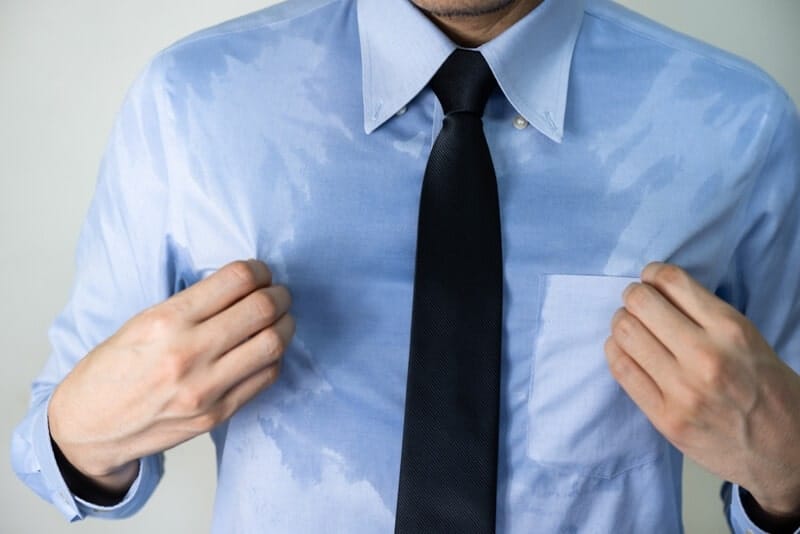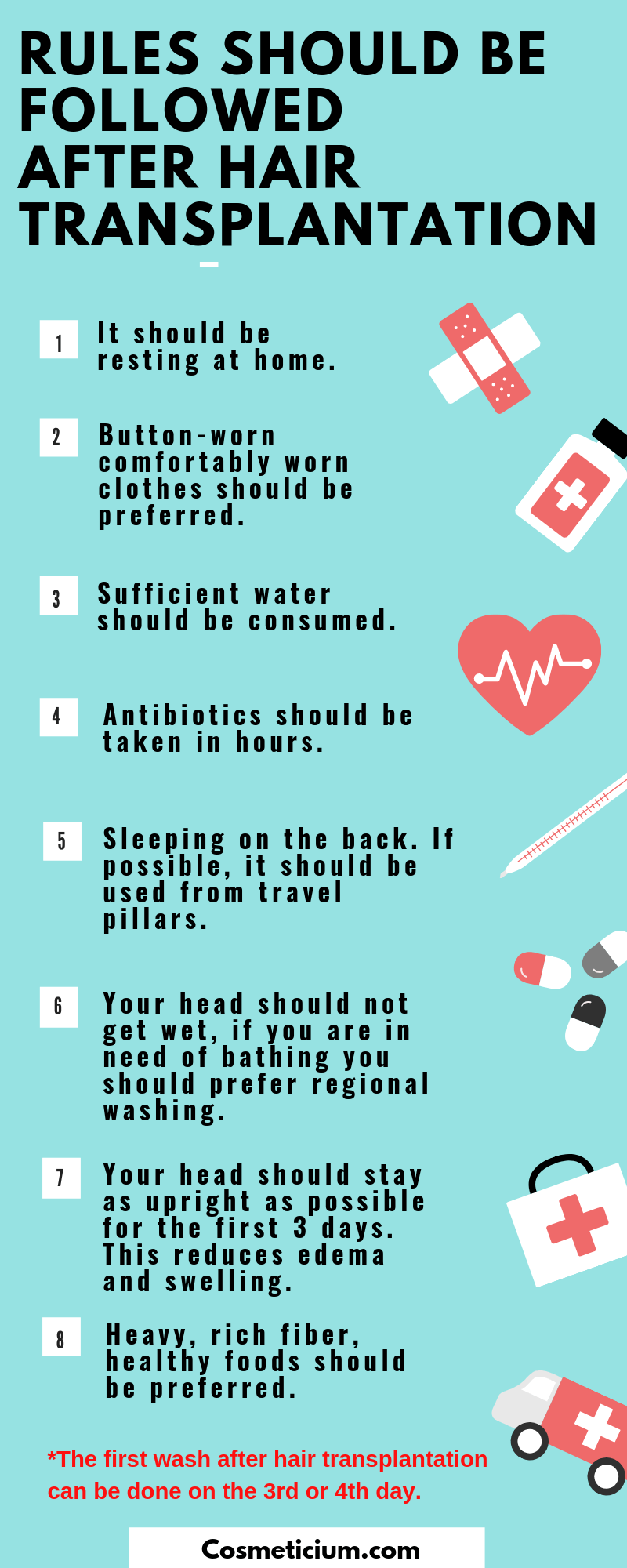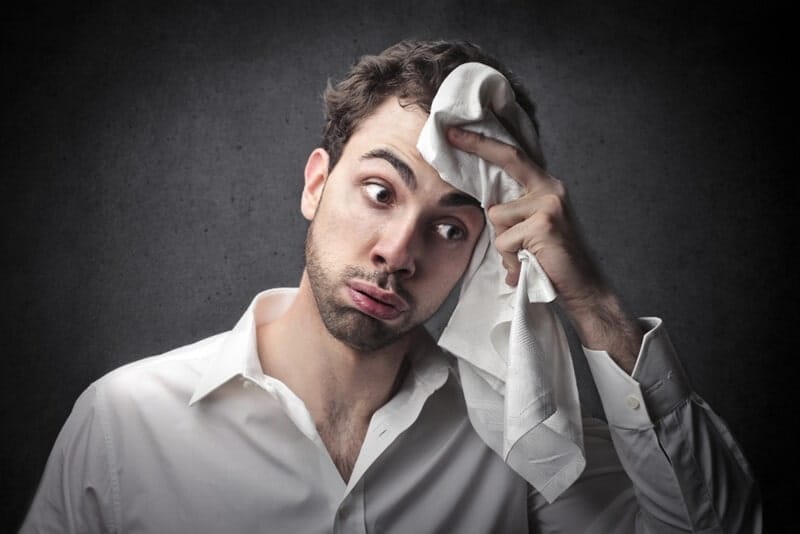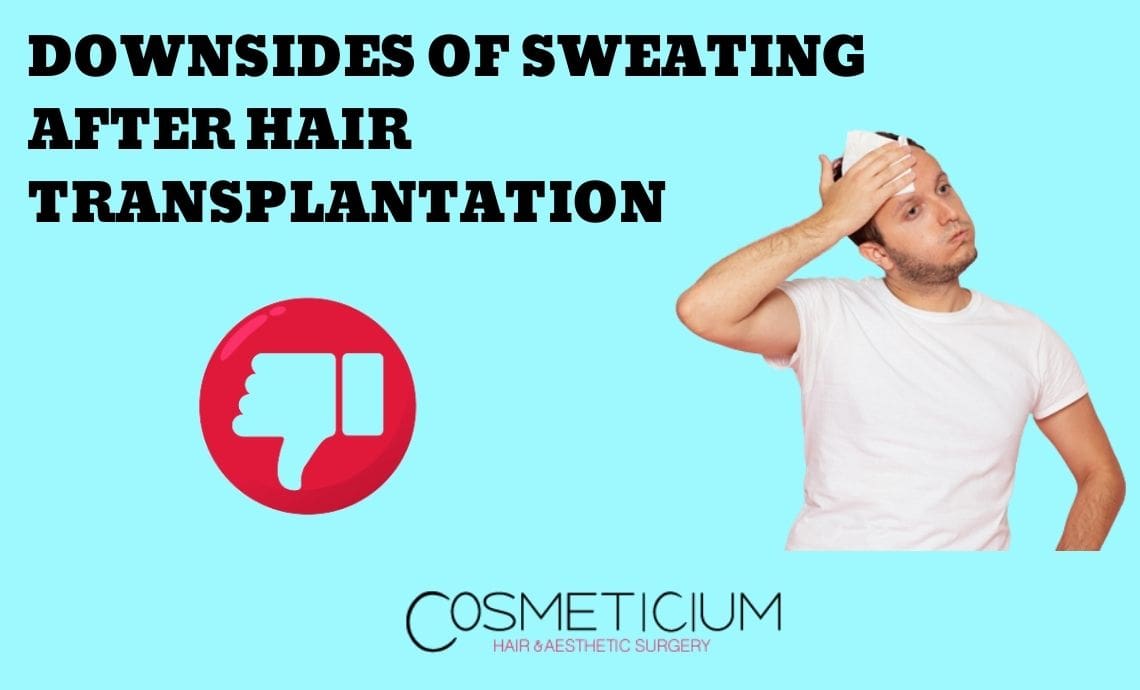Hair transplantation is performed with an operation that takes an average of 6-8 hours. The post-operative period is as important as the operation itself for the success of the procedure. Avoiding potential problems that may occur during this period increases its success. Sweating after hair transplantation is one of these problems and it adversely affects the results of the procedure.
Sweating is a natural phenomenon in the functioning of human body. So, why is sweating harmful after hair transplantation? How does it affect hair transplantation negatively? All details are in our article.
Table of Contents
The Importance of Sweating for the Body
Sweat glands located in almost every part of the body produce sweat under the control of the autonomic nervous system. Sweating can be expressed as a physiological process. In addition to the sweat glands, there are also scent glands that are attached to the hair follicles and provide the production of odor with sweat.
The human body performs many functions through sweating. The most well-known of these is the balancing of body temperature. Thus, human health is protected from many negativities that can be caused by heat.
While the toxins in the body are thrown away by sweating, it is ensured that the skin stays moist. Considering this aspect and its similar functions, it can be said that sweating is also of great importance for the immune system. The fact that sweat glands produce important substances as a defense against pathogens can be shown as an example.

The Underlying Causes of Sweating
In order to avoid the adverse effects of sweating after hair transplantation, first of all, the causes of sweating should be determined. The human body sweats or produces sweat depending on different reasons. These reasons can be generally listed as follows:
1. Thermoregulatory Sweating
It is the sweating due to increased body temperature. Thermoregulatory sweating occurs when your body temperature rises. This condition develops due to being in a hot environment or making intense physical effort. With sweating, body temperature decreases and your body balances the temperature.
2. Sweating Due to Tasting
Some foods can cause sweating because of their taste. In such a case, sweating first occurs on the face, forehead, lower lip and cheeks. Sweating that occurs after consumption of bitter, spicy and acidic food or drink can be given as an example of this situation. Besides, sweating after drinking alcohol is another example.
Avoiding spicy foods and alcohol consumption for a while after hair transplantation will increase the success of the procedure.

3. Sweating Due to Fear and Stress
Sweating occurs in the human body due to emotional reactions such as anger, nervousness and excitement. In such cases, sweating is first experienced in the palms and armpits. Sometimes the forehead area can also be affected by this condition.
4. Pathological Sweating Due to Diseases
Excessive sweating known as hyperhidrosis may occur due to some diseases and disorders. People with this type of disorder sweat much more than a healthy person.
Excessive sweating which has no underlying cause and occurs only with the person’s own emotional tension is called primary hyperhidrosis. It is known that this type of sweating, which is rare and not normal, is related to tumors, infections and similar diseases.
Read Also: When Can I Go on a Vacation After Hair Transplantation?
Why is Sweating Dangerous after Hair Transplantation?
Sweating after hair transplantation is considered to be dangerous due to its different effects. These effects are generally related to recovery duration.
After the hair transplantation, the healing process begins on the scalp. The most apparent indicator of this is the crusting of the wounds. These crusts not only provide the healing of the wounds but also ensure the safety of the transplanted grafts especially during the initial risky period.
The crusts soften with sweating after the hair transplantation. Thus, the healing process and the safety of the newly transplanted grafts are adversely affected. Depending on when sweating is experienced, the amount and the following process, there may be infection and inflammation on the scalp. Such situations adversely affect the results of hair transplantation.

Even if the hair follicles grow after hair transplantation, there is a risk of experiencing the above negativities. Therefore, the sweating issue should be considered important after hair transplantation.
How Long Should Sweating be Avoided After Hair Transplantation?
You should spend the first days after hair transplantation resting as much as possible. In the following weeks, you can return to your normal life by paying attention to sweating.
Sweating in the first 4 days after hair transplantation can greatly affect the healing process and the success of the procedure. Therefore, one has to be extremely sensitive during this period and all situations that will cause sweating should be avoided.
Even though you may return to your normal life after the first week, you should wait a little longer to exercise and do sports. In this period, if your doctor approves, you can only do very light exercises that do not tire you and do not make you sweat.
Read Also: How Will Your First Week Be After Hair Transplantation?
The First 14 Days are Important
After the first 14 days, you can start light exercises with the approval of your doctor. These exercises should be the ones that do not cause stress and do not make you sweat. If you want to start weight training, please remember that you should wait an average of 4 weeks after hair transplantation.
With the positive continuation of the healing process, there will be a significant reduction in the risks associated with sweating on your scalp. In the sweats to be experienced during this period, you need to ensure that the sweat flows smoothly. Besides, you should not wipe the sweat on your scalp with excessive pressure and you should pay extreme care to this area. Thus, you will be protected from the potential problems due to sweating after hair transplantation.
CONCLUSION
Sweating has very important functions for human health. However, having it after hair transplantation negatively affects the success of the procedure. Therefore, it is necessary to avoid sweating during this period and to take the necessary precautions for it.
Sweating after hair transplantation will cause the crusts formed during the healing process to soften. Therefore, the strength of the grafts will be adversely affected.

Cosmeticium provides you with the necessary support regarding the problems caused by sweating after hair transplantation. Our specialists inform you in detail about what to pay attention to, what to avoid, and how to fight sweating. Besides, you can get free consultancy service from our experts on issues such as hair transplantation and the adverse effects of sweating. You can contact us by filling out the form below to benefit from these services and to get more information about the subject.
Fill in the Form Below to Get Answers to All Your Questions Within Hours from Our Doctors About Hair Transplantation! (FREE)

